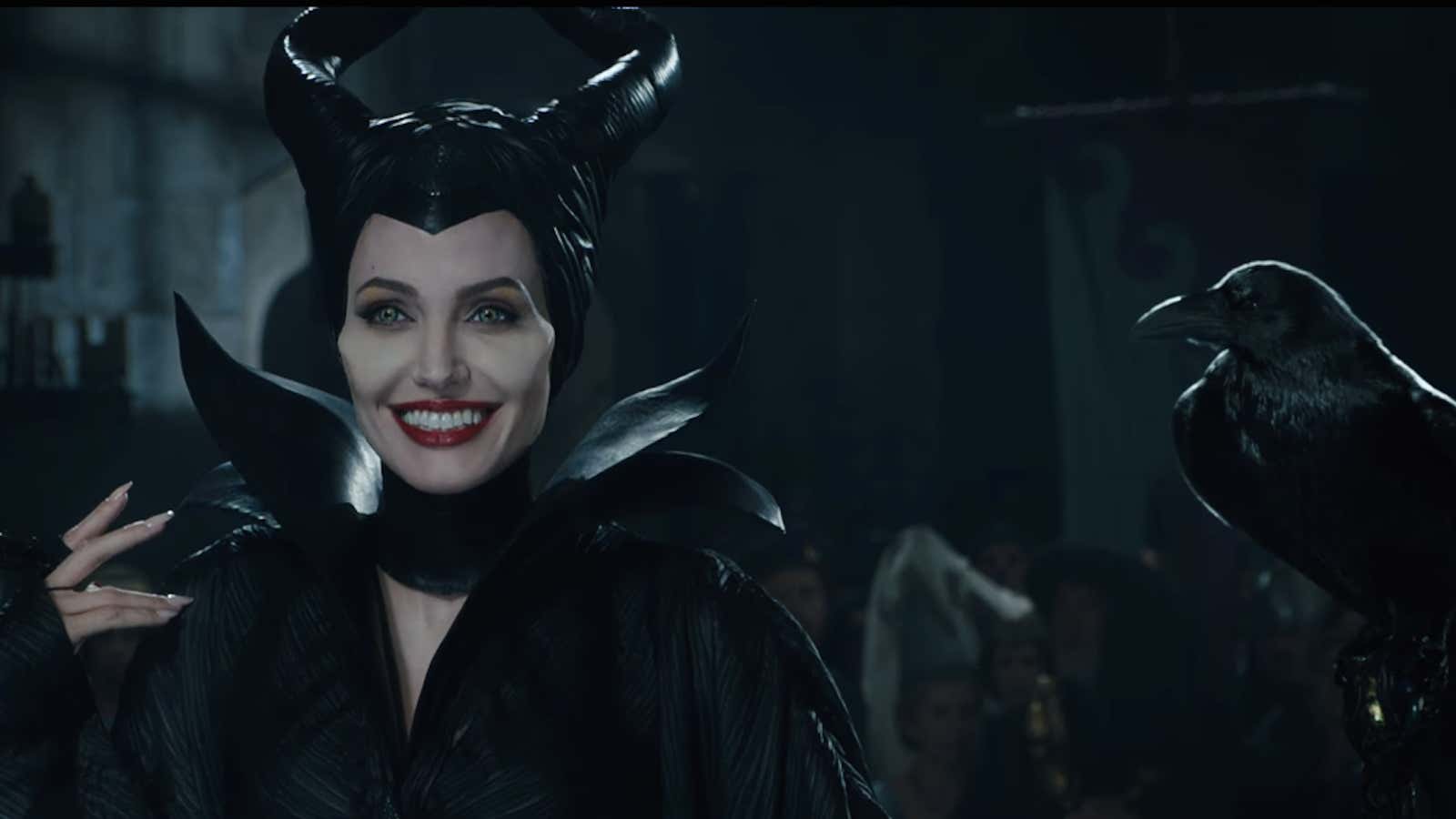“Let us tell an old story anew, and we will see how well you know it.” So begins Disney’s 2014 Sleeping Beauty spin-off Maleficent, and in our current cinematic context, the opening line seems almost as ominous as Angelina Jolie’s terrifying cheekbones. Try as you might, you can’t escape old stories. From Batman and Tarzan to Independence Day, Ghostbusters, Star Wars, and Star Trek, nostalgia properties consistently rise from their graves like reanimated corpses, eager to eat your brain at the local multiplex.
Disney is pursuing this trend as eagerly as anyone. In addition to the endless reshuffling of superhero properties in the Marvel Cinematic Universe, the company has also announced plans to remake a slew of animated features as live-action films. Maleficent, a reworking of 1959’s Sleeping Beauty, was Jolie’s highest-grossing film ever. The 2015 live-action Cinderella hit $500 million box office gross, quintupling its production budget, and the just-released Jungle Book surpassed predictions with a $103 million opening weekend powered by enthusiastic reviews. With numbers like that, it’s little wonder that Disney is also planning reboots of Pete’s Dragon, Beauty and the Beast, The Little Mermaid, Dumbo, Mulan, and others. A sequel to Tim Burton’s Alice in Wonderland from 2010—itself a remake of the cartoon original—is scheduled for later this year.
It’s easy to see these new films as cash grabs. And of course, they are. But it’s also worth remembering that Disney has always been in the reboot business. Sleeping Beauty, Snow White and the Seven Dwarfs (1937), Beauty and the Beast (1991), and the other best-known Disney animated features were all retellings of folk and fairy tales. Other releases, like the 1967 Jungle Book, were reworkings of out-of-copyright classics. The rage for repetitive storytelling feels like a recent imposition, but the truth is Disney built much of its empire on rehashing.
Sometimes those retellings don’t feel especially urgent or necessary. The 2015 Cinderella included delightfully campy performances by Cate Blanchett as the curdled evil stepmother and Helena Bonham Carter as a cheerfully addled fairy godmother. But Lily James’ Ella was an insufferably bland prig, who repeated “Have courage! Be kind!” with the wearisome attitude of a Hallmark card. With numerous witty, clever Cinderella updates already available, like the 2004 Ella Enchanted, we don’t need another doormat Cinderella to wait haplessly by the hearth for some boring Prince to save her.
Maleficent was a different matter. The most visually interesting and magnetic character in the 1959 animated Sleeping Beauty was its villain, and so Disney wisely put her at the center of its reboot. Maleficent is given a blighted love affair and a motive for her malice; the film flirts with a rape/revenge dynamic, in which Maleficent, robbed of her wings, inflicts a terrible retribution upon the violator/betrayer and his kingdom.
Instead of following the well-worn spurned lover path, though the film cleverly brushes aside the heterosexual romance plot in favor of a focus on Maleficent’s growing affection for Aurora (Elle Fanning), the girl she cursed. There’s a prince wandering around on the edges of the story, but Aurora only meets him once, and how can you fall in true love with some dude you’ve only met once? Real love in the film is what a mom—a stepmom no less—feels for her daughter. One of the ultimate heterosexual romance stories is turned into a parable about improbable female friendship, and loving your daughter, however she comes to you.
Maleficent doesn’t just tell Sleeping Beauty anew; it argues with it, questions it, rethinks it. That’s important precisely because certain old stories are so ubiquitous and inescapable. Princes are always swooping in to save the fair maiden with the gift of true love, just as, it seems, we’re forever doomed to have superheroes saving the universe by hitting some bad guy in the face. Girls wait to be saved; boys save via violence. If we’re going to be different people, we need to figure out how to make our stories say something different.
Not that I’d necessarily trust Disney to make a habit of always getting it right. It’s true that The Jungle Book makes some thoughtful alterations to Mowgli’s fate. But it’s alarming that the female protagonists of the studio’s first three modern Disney remakes—Mia Wasikowska as Alice in Tim Burton’s 2010 film, Lily James, and Elle Fanning—are all white, thin, young, and very blonde. Going by these movies, you only get to be a Disney heroine if your looks fit into a very narrow mold. If you’re a person of color, someone who’s anything other than movie-star slender or, heck, a brunette, you’re out of luck.
Yet there’s reason to hold out hope. Reboots don’t have to be just another dull reiteration of the same race and gender tropes. As The Jungle Book and Maleficent show, they can be a way to magic those tropes into a new shape. Let’s cross our fingers for movies that show us, as Maleficent‘s voiceover says before the final fade, “the story is not quite as you were told.”




